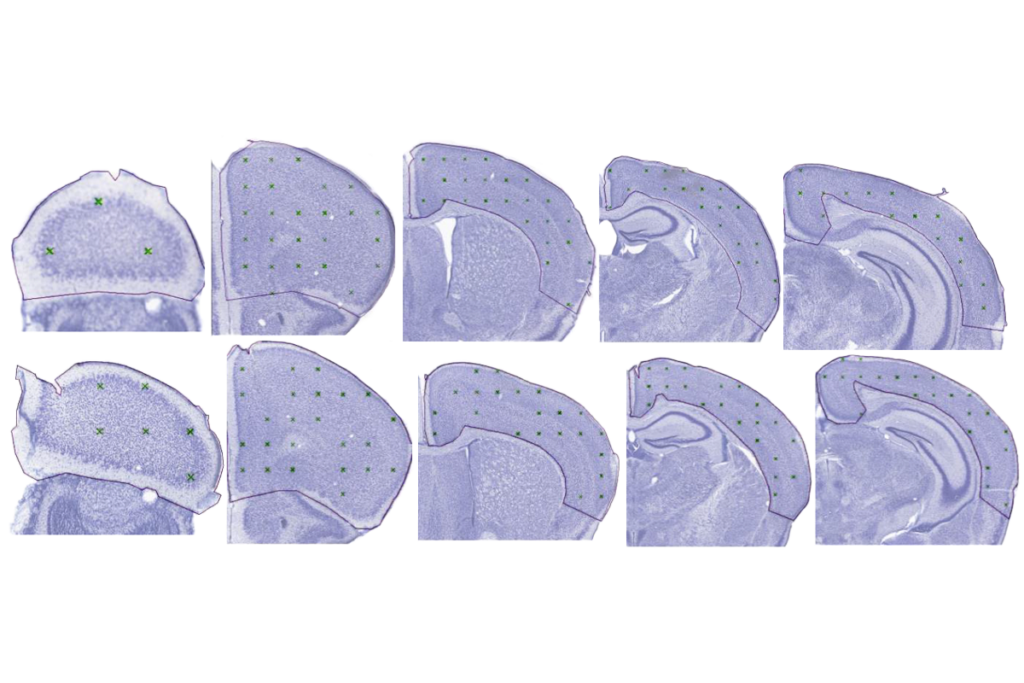Brain Inspired
Recent articles
This podcast, hosted by Paul Middlebrooks, features in-depth conversations with neuroscientists studying natural and artificial intelligence, philosophy, consciousness and other related areas.
Xiao-Jing Wang outlines the future of theoretical neuroscience
Wang discusses why he decided the time was right for a new theoretical neuroscience textbook and how bifurcation is a key missing concept in neuroscience explanations.
Xiao-Jing Wang outlines the future of theoretical neuroscience
Wang discusses why he decided the time was right for a new theoretical neuroscience textbook and how bifurcation is a key missing concept in neuroscience explanations.
Nicole Rust on her new book, ‘Elusive Cures’
Rust discusses how understanding the brain as a complex dynamical system will help us accelerate treatments for brain disorders.
Nicole Rust on her new book, ‘Elusive Cures’
Rust discusses how understanding the brain as a complex dynamical system will help us accelerate treatments for brain disorders.
What do neuroscientists mean when they use the term ‘representation’?
A group of neuroscientists and philosophers discuss the use and misuse of the term "representation" across the cognitive sciences and how it influences the way we interpret the connection between neural, behavioral and mental activity.
What do neuroscientists mean when they use the term ‘representation’?
A group of neuroscientists and philosophers discuss the use and misuse of the term "representation" across the cognitive sciences and how it influences the way we interpret the connection between neural, behavioral and mental activity.
John Beggs unpacks the critical brain hypothesis
Beggs outlines why and how brains operate at criticality, a sweet spot between order and chaos.
John Beggs unpacks the critical brain hypothesis
Beggs outlines why and how brains operate at criticality, a sweet spot between order and chaos.
Oscar Ferrante, Rony Hirschhorn and Alex Lepauvre discuss putting integrated information and global neuronal workspace theories of consciousness to the test
The trio is part of the adversarial collaboration launched to test various theories of consciousness, a project known as COGITATE.
Oscar Ferrante, Rony Hirschhorn and Alex Lepauvre discuss putting integrated information and global neuronal workspace theories of consciousness to the test
The trio is part of the adversarial collaboration launched to test various theories of consciousness, a project known as COGITATE.
Dean Buonomano explores the concept of time in neuroscience and physics
He outlines why he thinks integrated information theory is unscientific and discusses how timing is a fundamental computation in brains.
Dean Buonomano explores the concept of time in neuroscience and physics
He outlines why he thinks integrated information theory is unscientific and discusses how timing is a fundamental computation in brains.
Aran Nayebi discusses a NeuroAI update to the Turing test
And he highlights the need to match neural representations across machines and organisms to build better autonomous agents.
Aran Nayebi discusses a NeuroAI update to the Turing test
And he highlights the need to match neural representations across machines and organisms to build better autonomous agents.
Gabriele Scheler reflects on the interplay between language, thought and AI
She discusses how verbal thought shapes cognition, why inner speech is foundational to human intelligence and what current artificial-intelligence models get wrong about language.
Gabriele Scheler reflects on the interplay between language, thought and AI
She discusses how verbal thought shapes cognition, why inner speech is foundational to human intelligence and what current artificial-intelligence models get wrong about language.
Alison Preston explains how our brains form mental frameworks for interpreting the world
Preston discusses her research examining differences in how children, teenagers and adults integrate new information into their memories.
Alison Preston explains how our brains form mental frameworks for interpreting the world
Preston discusses her research examining differences in how children, teenagers and adults integrate new information into their memories.
Ciara Greene on the quirks and complexities of human episodic memory
Greene's book, “Memory Lane: The Perfectly Imperfect Ways We Remember,” explores the many factors that affect how we recall the events in our lives, from the mundane to the emotionally powerful.
Ciara Greene on the quirks and complexities of human episodic memory
Greene's book, “Memory Lane: The Perfectly Imperfect Ways We Remember,” explores the many factors that affect how we recall the events in our lives, from the mundane to the emotionally powerful.
Explore more from The Transmitter
Memory study sparks debate over statistical methods
Critics of a 2024 Nature paper suggest the authors failed to address the risk of false-positive findings. The authors argue more rigorous methods can result in missed leads.

Memory study sparks debate over statistical methods
Critics of a 2024 Nature paper suggest the authors failed to address the risk of false-positive findings. The authors argue more rigorous methods can result in missed leads.
Attention not necessary for visual awareness, large study suggests
People can perceive some visual information even if they do not pay direct attention to it.

Attention not necessary for visual awareness, large study suggests
People can perceive some visual information even if they do not pay direct attention to it.
Genetic testing; LSD1 inhibitors; and more
Here is a roundup of autism-related news and research spotted around the web for the week of 30 June.

Genetic testing; LSD1 inhibitors; and more
Here is a roundup of autism-related news and research spotted around the web for the week of 30 June.